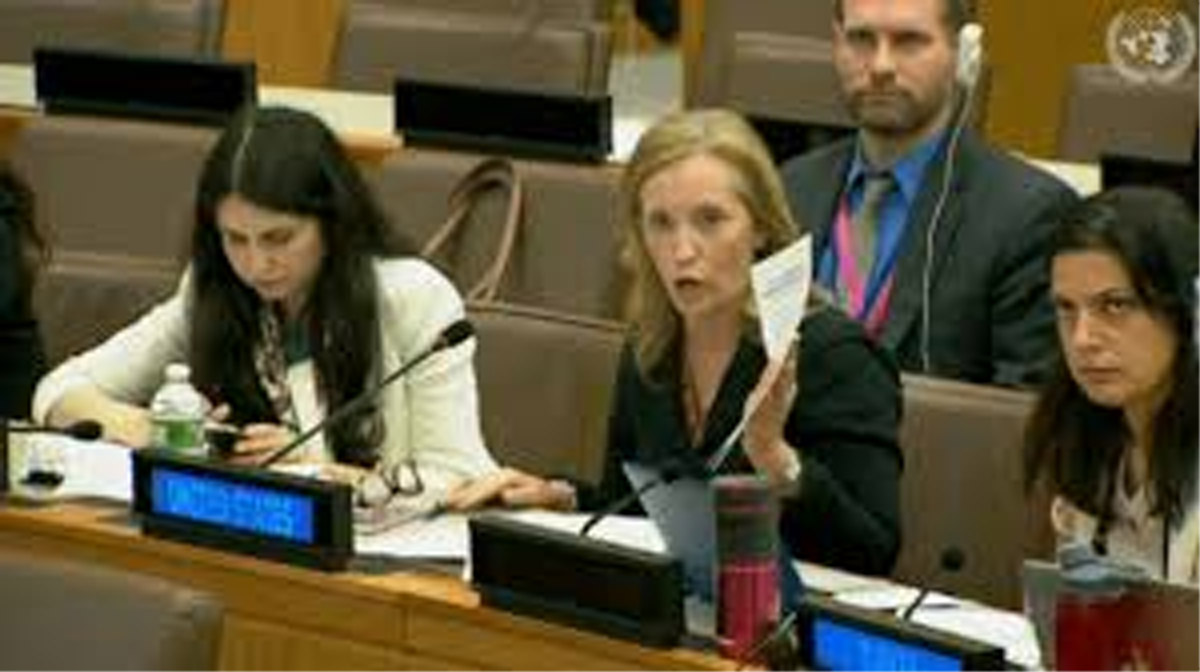GENEVA, Mar 14: The United States has voiced disappointment at the failure of Muslim nations to jointly take a stand against China’s treatment of its Uighurs and other Muslim minorities in Xinjiang province.
“We are, I can say, disappointed about the lack of response from members of the OIC (Organization of Islamic Cooperation), and the lack of outspoken concern,” said US Ambassador Kelley Currie, who heads the State Department’s Office of Global Criminal Justice.
Currie was speaking to reporters ahead of a US-sponsored event at UN headquarters in Geneva focused on allegations of mass-internment of Uighurs in China’s restive Xinjiang province.
While she applauded Turkey for its recent strong criticism of China’s treatment of its Muslim minorities, she said Washington had hoped the IOC would have collectively condemned the situation in Xinjiang as it has done regarding rights abuses against Muslims in Myanmar and Syria.
A statement from OIC foreign ministers earlier this month failed to reflect concern about the situation, she said, describing this as “disappointing and frustrating”.
Her comments came as Washington released its annual human rights report, in which it maintained that China had “significantly intensified its campaign of mass detention of members of Muslim minority groups in Xinjiang”.
“Today, more than one million Uighurs, ethnic Kazakhs and other Muslims are interned in re-education camps designed to erase their religious and ethnic identities,” US Secretary of State Mike Pompeo said as he introduced the report.
During the event in Geneva, Currie and other speakers, including experts and an alleged former detainee in a Xinjiang re-education camp, made similar charges, eliciting a strong reaction from a Chinese diplomat in the room.
“We strongly object to this anti-China side-event sponsored by the US mission,” said the diplomat, who didn’t give his name, charging that the event was “obviously driven by a political agenda”.
“There are no so-called concentration camps in Xinjiang,” he said, reiterating Beijing’s claims that it is combating separatism and religious extremism through vocational education.
One of the speakers, Adrian Zenz, a China security expert at Germany’s European School of Culture and Theology, meanwhile charged that China’s so-called vocational training centres were “a mask for an unprecedented campaign of coercive social reengineering”.
“What we are witnessing in Xinjiang is nothing less than a systematic campaign of cultural genocide,” he said, warning that other regions with large Muslim minorities could soon suffer a similar fate.
Xinjiang “is like a testing ground”, he told AFP.
The event, which was also backed by Britain, Canada, Germany and the Netherlands, took place on the sidelines of the UN Human Rights Council and not before the main UN rights body itself.
The administration of US President Donald Trump decided to slam the door on that council last year.
One of the panellists, John Fisher, who heads Human Rights Watch’s Geneva office, suggested Washington was partially to blame for the lack of broader international condemnation of the situation in Xinjiang.
“One of the challenges is that the main state that has been willing to stand up to China in the past no longer engages with the Human Rights Council,” he said.
“There is a gap of leadership.” (AGENCIES)


